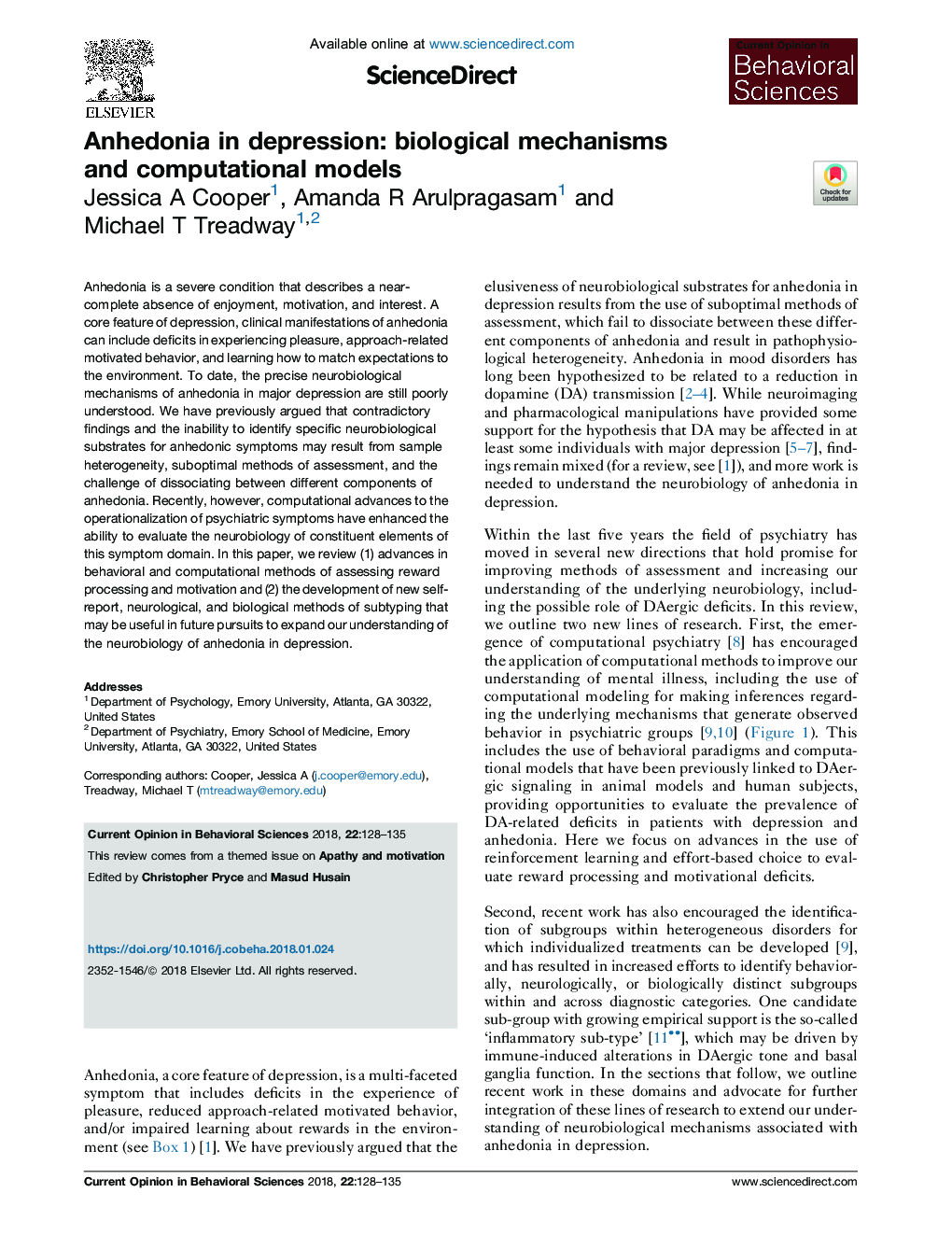| Article ID | Journal | Published Year | Pages | File Type |
|---|---|---|---|---|
| 8838102 | Current Opinion in Behavioral Sciences | 2018 | 8 Pages |
Abstract
Anhedonia is a severe condition that describes a near-complete absence of enjoyment, motivation, and interest. A core feature of depression, clinical manifestations of anhedonia can include deficits in experiencing pleasure, approach-related motivated behavior, and learning how to match expectations to the environment. To date, the precise neurobiological mechanisms of anhedonia in major depression are still poorly understood. We have previously argued that contradictory findings and the inability to identify specific neurobiological substrates for anhedonic symptoms may result from sample heterogeneity, suboptimal methods of assessment, and the challenge of dissociating between different components of anhedonia. Recently, however, computational advances to the operationalization of psychiatric symptoms have enhanced the ability to evaluate the neurobiology of constituent elements of this symptom domain. In this paper, we review (1) advances in behavioral and computational methods of assessing reward processing and motivation and (2) the development of new self-report, neurological, and biological methods of subtyping that may be useful in future pursuits to expand our understanding of the neurobiology of anhedonia in depression.
Related Topics
Life Sciences
Neuroscience
Behavioral Neuroscience
Authors
Jessica A Cooper, Amanda R Arulpragasam, Michael T Treadway,
